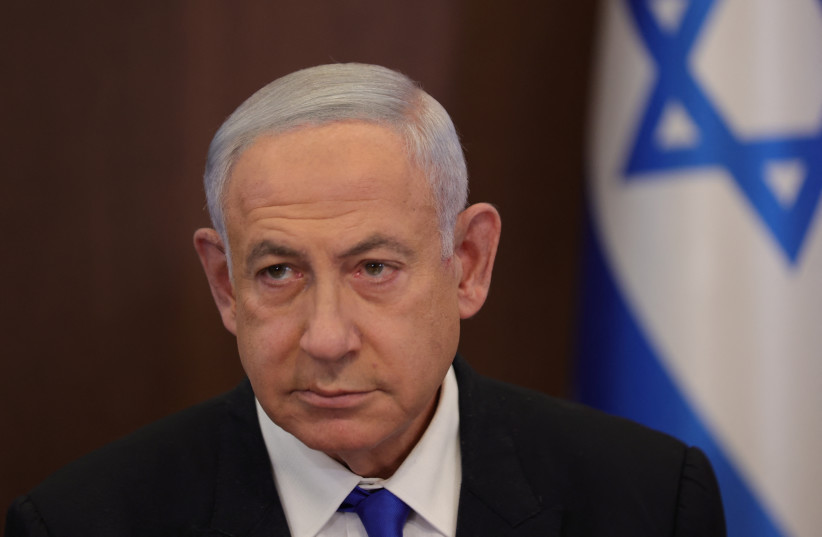There are lines in the Book of Esther – read throughout the Jewish world on Tuesday and in Jerusalem and other “walled cities” on Wednesday – that readers will come across and say, “Ah, this has relevance.”
This is the verse that quotes a message Mordechai sent to Queen Esther upon learning that the Jews have been singled out for genocide.
“If you keep silent in this crisis, relief and deliverance will come to the Jews from another quarter while you and your father’s house will perish. And who knows, perhaps you have attained to royal position for just such a crisis (4:14).”
That line should have resonated loudly for President Isaac Herzog when he read the Megillah this Purim. Not the part about delivering Jews from genocide – thank goodness that is not an immediate threat. But rather the part about attaining a royal position at a particular point in time to deliver the Jewish people from the crisis.
The State of Israel is in a crisis, not this time because of enemies from the outside, but rather because of deep divisions from within. So far, incredibly, no one has come forward to deliver the state from that crisis. On the contrary, those considered “leaders” have only made it worse.

Prime Minister Benjamin Netanyahu has made it worse, because he has not told his coalition that enough is enough and that if they continue steamrolling the judicial reform through they may get the courts they want, but will have weakened the country’s ability to defend itself and harmed its solidarity, economy and international stature in the process.
And opposition leader Yair Lapid has not helped, because instead of being a moderating voice that embraces dialogue, he continues to call for protests.
Sadly, the voice of reason and moderation – that proverbial “adult” voice in the room – is not coming from the political leadership.
Herzog: Israel's responsible adult
Herzog, therefore, stepped into the breach. Understanding that, as he said on Monday, “we are in a historic crisis that threatens to destroy us from within, once and for all,” he has been fervently trying to douse the flames for weeks.
In early February, he outlined a five-point compromise plan – one that recognized that the judicial system could use reform, but not a total overhaul – and called on the opposing sides to come to his residence to negotiate.
For various reasons, they refused. Herzog tried to use his moral authority – and was rebuffed.
The president then had two options. First, he could lick the wounds of injured pride and just say to the warring politicians, “I tried; now it’s up to you.” Or he could look for a bypass road around politicians blinded by ego and political interest.
Herzog, commendably, chose the latter option and sponsored talks between academics and jurists representing both sides of the reform issue. These efforts have borne fruit, and he is expected to put a compromise proposal before the public in the coming days.
The compromise will reportedly not make either side of the debate completely happy – such is the nature of compromises.
According to unconfirmed details of the plan reported by the media, the Supreme Court will be able to strike down regular laws with a special super majority, but not basic laws. The Knesset will not be able to override the courts. The reasonableness clause will be significantly curtailed. And the committee to appoint judges will be constituted so that the politicians will have a greater say, but not a blank check to appoint whomever they want.
Predictably, the extreme voices on both sides are rejecting the compromise. Herzog, wisely, is ignoring them, and appealing to the middle ground in the belief that the middle ground on this issue is where most of the country resides. His strategy is simple: put the plan out there, apparently in significant detail, and then let the public apply pressure on the politicians – as the heads of the local authorities have started to do – to wake up and realize that their unyielding positions are endangering the Zionist project.
We fervently hope the plan works. And who knows? Perhaps, it was precisely for this reason that Herzog was elected president.
